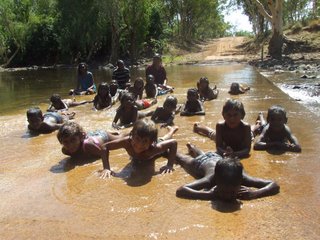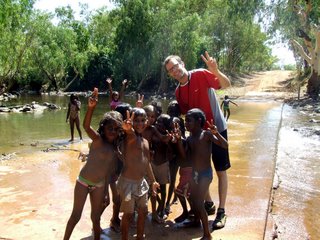

Today was scorching hot. It hit 41 degrees (at least). Luckily me and some of the language mob were joining in with a school excursion to the Wilton River, a nice little swimming spot about 30 mins away.
The excursion was for the transition class - all five year olds. They have excellent local teachers and I brought along 4 language teachers. There was a lot of swimming as well as some language classes (the kids broke up into 4 different language groups and the assistant teachers joined in very well too). Plus one old lady showed the kids how to make a coolamon out of paperbark and their regular teacher made a paperbark raft and floated one of the students on it. We all had lunch, a cup of tea and it was quite a relaxing day and definitely a good way to pass time when it's 41 degreees. Here's a couple of pics. The first one is all the kids and their teachers at the Wilton River crossing. They're laying down like crocodiles. And then there's me with a bunch of them. Awww.
Comments
eep!
Another temperature update fo y'all. Yesterday hit 43.6!
No wonder I'm not feeling so energetic.
Great pictures, by the way. Love the Alligators!